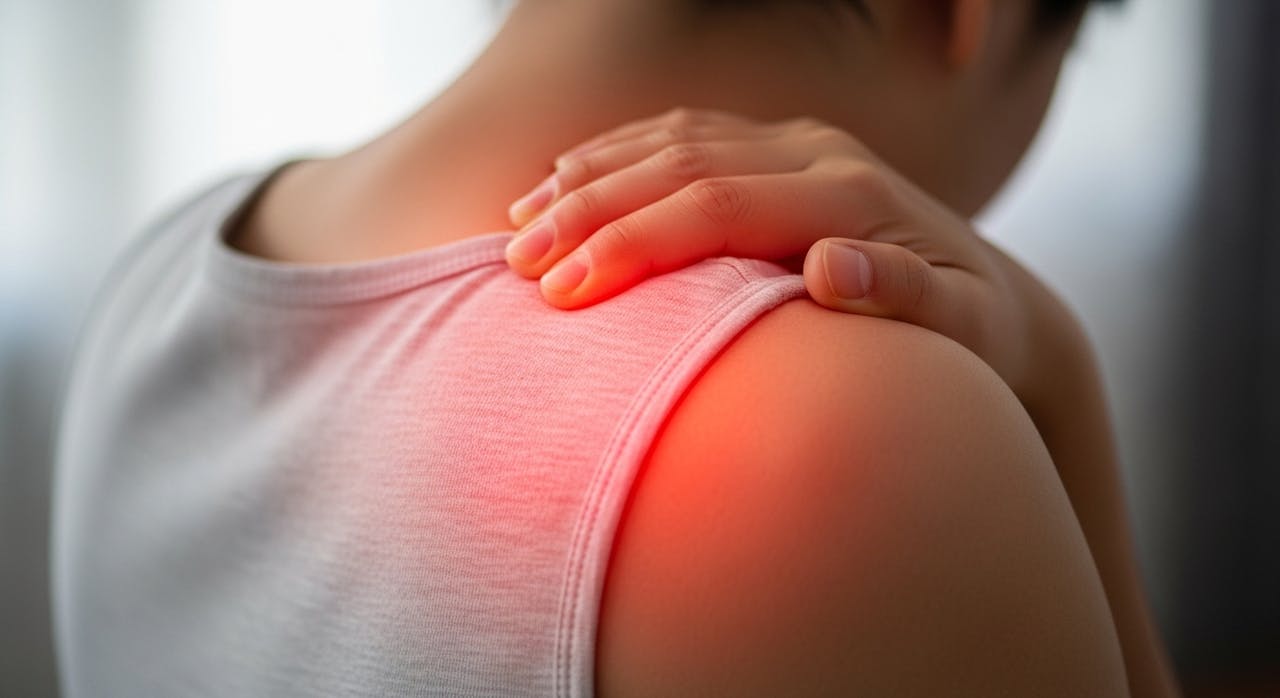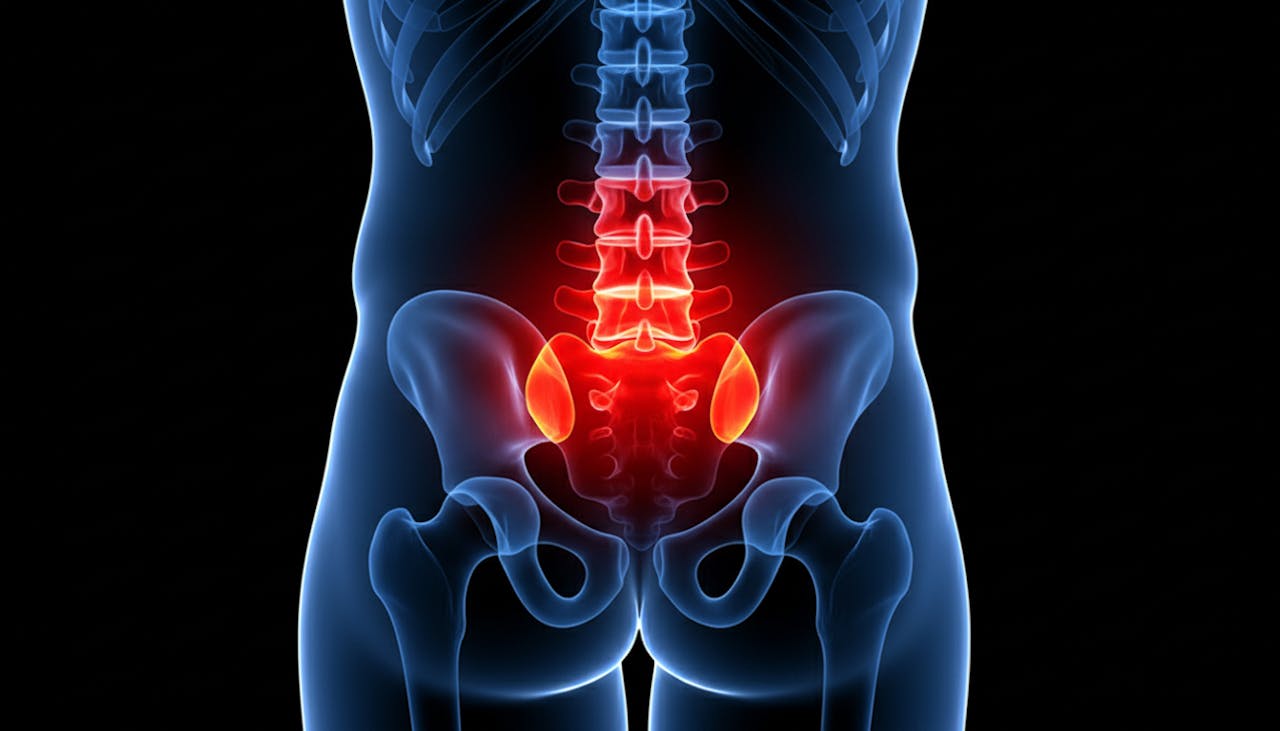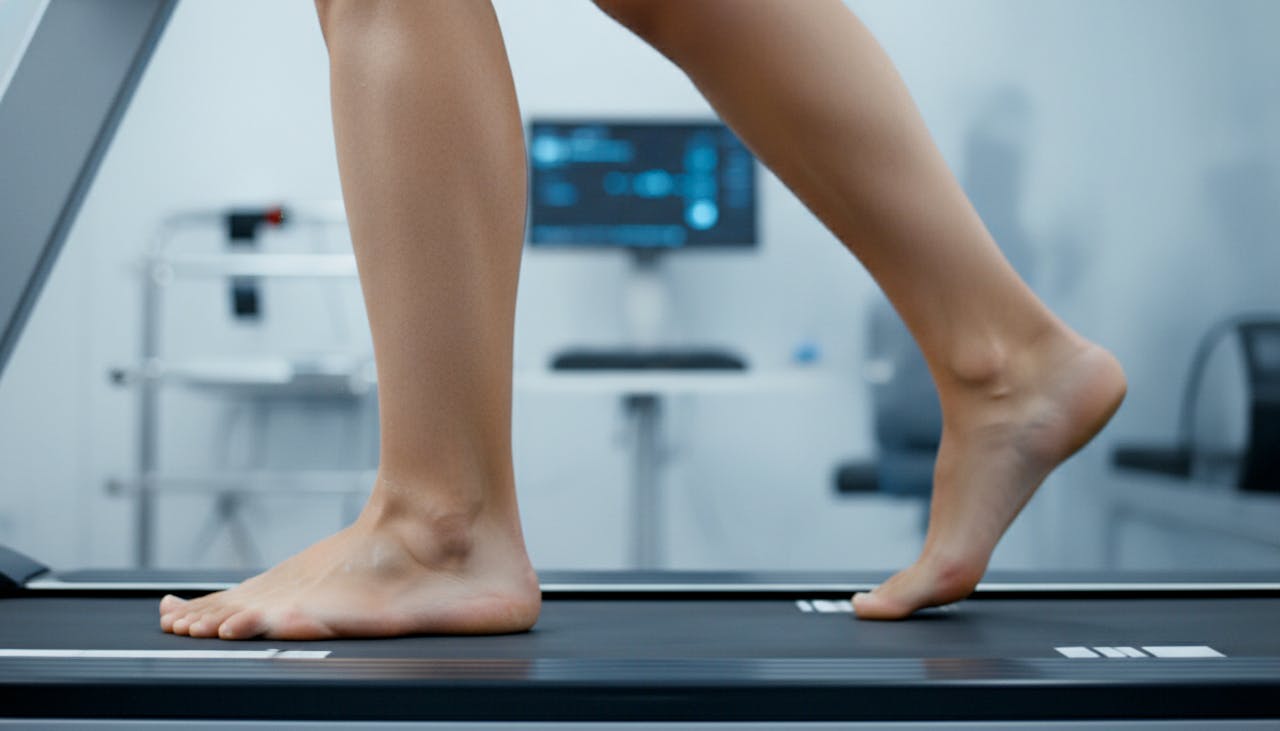
Myofascial Pain Syndrome
Myofascial Pain Syndrome is a chronic pain condition characterised by sensitive "trigger points" in your muscles or connective tissue (fascia) that can cause deep aching and referred pain in seemingly unrelated parts of the foot or leg.
Overview
What is it?
Myofascial Pain Syndrome (MPS) involves the development of "trigger points"—taut, hyper-irritable bands or knots within a muscle or its surrounding fascia (connective tissue). Unlike standard muscle tension, pressing on these trigger points often causes pain in a completely different area; this is known as referred pain. For example, a trigger point in your calf muscle might be the actual cause of the pain you feel in your heel or arch.
How common is it?
It is an incredibly common, yet frequently overlooked, cause of chronic musculoskeletal pain.Almost everyone will experience a trigger point at some stage, but MPS refers to the condition where these persist and cause ongoing dysfunction.

Symptoms & Causes
What are the symptoms?
The main symptoms are persistent, deep muscle aching, stiffness, and reduced range of motion in the affected area. You may feel distinct, tender knots under the skin.
What does it feel like?
The pain is often described as a dull, steady, deep ache. When a clinician presses on a specific "knot" in your muscle, you might experience a "jump sign" (an involuntary flinch due to intense local sensitivity) or feel the pain travel strangely to another part of your leg or foot.
What causes it?
Trigger points typically develop after a muscle has been injured or repeatedly strained.
- Repetitive Overuse: In podiatry, we often see this in the calf muscles (gastrocnemius/soleus) or intrinsic foot muscles due to poor walking or running mechanics that constantly overwork these areas.
- Poor Posture/Biomechanics: If your feet roll in excessively (overpronation), your leg muscles must work overtime to stabilise you with every step, leading to chronic strain and trigger point formation.
- Direct Injury: Old sporting injuries that didn't heal correctly can leave residual trigger points.
Some health conditions can include:
- Stress and Anxiety: High psychological stress often manifests as increased muscle tension, exacerbating MPS.
- Fibromyalgia: While distinct from MPS, patients with fibromyalgia often also have widespread myofascial trigger points.

How is it Diagnosed?
MPS is often a "hidden" diagnosis because the painful area (e.g., the foot) is not actually where the problem originates (e.g., the calf).
What tests are used to diagnose it?
There are no blood tests or MRI scans that can visualize a trigger point. Diagnosis is entirely clinical and hands-on.
- Palpation Examination: At Foot Factor, we will skillfully feel (palpate) your muscles looking for taut bands and tender nodules.
- Pain Mapping: We will apply pressure to these points to see if it reproduces your specific foot or leg pain (confirming a referred pain pattern).
- Gait Analysis: Crucially, we look for why those muscles are under strain—usually a biomechanical fault in how you walk or run.
Foot Factor provides Expert Podiatry Treatment Tailored to You.
At Foot Factor, our podiatrists specialise in diagnosing and treating foot pain with precision and expertise. With advanced gait analysis, bespoke orthotics, and sports-focused podiatry care, we don’t just identify the problem—we provide a targeted solution to get you back to moving pain-free. Book a consultation today and take the first step toward lasting relief.

How is it Treated?
Effective treatment involves deactivating the current trigger points and, more importantly, fixing the biomechanical reason they developed in the first place.
- Manual Therapy: Techniques such as deep tissue massage, specific trigger point pressure release, or dry needling (if offered) can help to physically "break down" the knot and encourage normal blood flow to the area.
- Stretching and Strengthening: A tailored programme to lengthen shortened, tight muscles and strengthen weak ones to restore balance to the limb.
- Specialist Orthotics: This is a key long-term solution. By using custom orthotics to correct your foot posture (e.g., supporting a collapsing arch), we can stop the daily repetitive strain on your calf and foot muscles, preventing the trigger points from returning.
Our Bespoke Orthotics give you the Right Support for Long-Term Relief.
At Foot Factor, our podiatrists specialise in diagnosing and treating foot pain with precision and expertise. With advanced gait analysis, bespoke orthotics, and sports-focused podiatry care, we don’t just identify the problem—we provide a targeted solution to get you back to moving pain-free. Book a consultation today and take the first step toward lasting relief.
Related Articles
Find expert tips, advice, and insights to support your foot health and active lifestyle.


